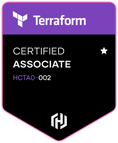What is CSS?
CSS (Cascading Style Sheets) is a styling language used to describe the presentation of web pages. It is a cornerstone technology of the World Wide Web, alongside HTML (Hypertext Markup Language) and JavaScript. CSS provides web developers with a way to create attractive and responsive layouts, typography, and visual effects, separating the presentation of content from its structure and behavior.
This separation enables web designers to create consistent and coherent designs across a website or a web application. CSS is extensively used in web development, from simple websites to complex web applications, and has become an essential tool for creating modern, responsive, and visually appealing web pages.
CSS Methodologies
Atomic CSS
A methodology that focuses on writing small, single-purpose classes, also known as atomic classes, that can be combined to create any style or layout. Frameworks like Tachyons, Tailwind CSS, and Basscss use Atomic CSS.
BEM
Block Element Modifier is a naming convention for CSS classes that helps to create consistent and reusable code. It divides a web page into blocks, elements, and modifiers and uses a specific naming scheme to identify each one. Popular frameworks like Bootstrap have integrated BEM into their naming conventions.
SMACSS
Scalable and Modular Architecture for CSS divides CSS rules into five categories: Base, Layout, Module, State, and Theme. This methodology helps manage and maintain large codebases, with its principles widely adopted by front-end developers.
Utility CSS
Utility CSS emphasizes the use of utility classes to apply specific styles to elements. Classes like .text-center or .bg-blue are commonly used. Frameworks like Bootstrap and Tailwind CSS provide robust sets of utility classes.
By following these methodologies, developers can create well-organized and maintainable CSS code that is easier to understand and collaborate on. Many front-end frameworks have integrated these methodologies into their naming conventions and code structure.
Things to Consider When Writing CSS
To ensure your styles perform well and provide a great user experience, consider the following:
- Performance: Optimize styles for faster page loads by minimizing file size and HTTP requests and leveraging caching.
- Paint Refresh: Simplify styles and avoid overly complex selectors to minimize slow paint refresh times.
- Time to First Paint: Use strategies like inlining critical CSS or lazy loading non-critical resources to improve the initial page load experience.
- Library Size: Choose libraries carefully, including only necessary features to avoid bloated stylesheets.
- Tree Shaking Unused CSS: Use tools like PurgeCSS or PostCSS-uncss to remove unused styles and reduce stylesheet size.
- Inline Styles: Use inline styles judiciously, balancing performance benefits with maintainability.
- Lazy Loading: Load resources like images and videos only as needed to improve page load times.
- Above-the-Fold Loading: Load styles required for above-the-fold content first using tools like Critical CSS.
- Utility Classes: Limit the overuse of utility classes to maintain performance and readability.
By keeping these considerations in mind, you can create styles that deliver great user experiences and perform well across devices and network conditions.
Our CSS Development Process with Modular Focus
At Space-Rocket, we believe that a well-defined development process is key to delivering successful projects. Our CSS development process, with a focus on modular structure, ensures high standards for quality, performance, and usability.
Our Process Includes:
- Consultation and Requirements Gathering: Understanding your business needs and goals to define requirements for your CSS application with a modular focus.
- Planning and Architecture: Creating a detailed plan and architecture that considers scalability, performance, and user experience.
- Modular Component and Page Development: Developing CSS modules with a focus on modular structure, optimized for performance, usability, and maintainability.
- Continuous Integration (CI): Regularly integrating code changes to ensure a deployable state and catch issues early.
- Continuous Deployment (CD): Automating deployment for efficient and reliable updates.
- Ongoing Maintenance and Support: Providing continued support to ensure your CSS application remains performant and meets evolving needs.
Our Promise to Clients
We are committed to delivering the highest quality CSS development services with a modular focus. With our experienced developers, we guarantee that every project will be completed to the highest standards.
Contact Space-Rocket today to discuss your CSS development needs with a modular focus. Schedule a consultation or get a free quote!


